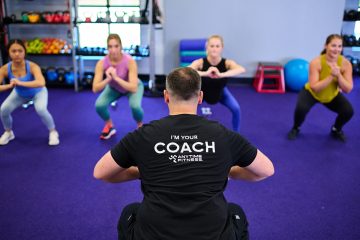The Science of Personal Training in Singapore: Evidence-Based Techniques That Deliver Results

Why Science Matters in Fitness
Many people in Singapore start their fitness journey with enthusiasm, only to hit plateaus or suffer from injuries. This often happens because they follow random online workouts or fitness myths that are not suited to their body type or goals. Scientific training eliminates guesswork and replaces it with proven methods that produce measurable progress.
Personal trainers in Singapore are increasingly adopting evidence-based practices to design programmes that are safe, efficient, and effective. For working adults and beginners alike, this means faster results without the risks of overtraining or following unsustainable fads. With a structured, science-driven approach, professionals can focus on what works rather than wasting time experimenting.
In this context, personal training Singapore stands out as a long-term solution that combines professional expertise with scientific methods.
Key Scientific Training Principles
A well-designed personal training programme is built on core scientific principles that govern human performance. Understanding these ensures clients see consistent progress instead of stagnation.
Progressive Overload
Muscles grow and adapt when they are challenged slightly beyond their current capacity. Trainers gradually increase weight, repetitions, or intensity to ensure clients build strength and endurance safely. Without progressive overload, the body remains stagnant, and results plateau.
Periodisation for Strength and Endurance
Periodisation is the practice of dividing training into cycles that vary intensity and volume. In Singapore, where professionals may face hectic schedules, this method helps balance progress with recovery. For example, one month may focus on strength building, followed by a phase prioritising endurance or fat loss. This systematic variation prevents overtraining and keeps workouts engaging.
Recovery Cycles
Recovery is not laziness; it is science in action. During rest, the body repairs microtears in muscles and adapts to training stress. Trainers ensure recovery periods are strategically placed to prevent burnout, which is especially critical for busy Singaporeans juggling career and family responsibilities.
Nutrition and Supplementation Guidance
Exercise alone cannot deliver complete transformation. Nutrition plays a vital role in fuelling performance and aiding recovery. Trainers in Singapore are now placing greater emphasis on evidence-based nutrition guidance rather than fad diets.
-
Balanced Macronutrients: A mix of carbohydrates, proteins, and fats designed for individual goals.
-
Singapore Food Context: Trainers help clients navigate hawker centre meals by identifying healthier choices without sacrificing taste.
-
Hydration: Given Singapore’s humid climate, hydration strategies are incorporated into every plan.
-
Supplements: Only evidence-backed supplements, such as protein powders or omega-3s, are suggested when necessary, avoiding gimmicky products.
By pairing structured workouts with practical nutrition adjustments, clients enjoy sustainable results rather than quick fixes.
Tech and Data in Fitness
Technology has revolutionised personal training in Singapore. Trainers now use data to monitor progress, correct form, and refine strategies. Instead of guessing improvements, clients can see their development in measurable numbers.
Body Composition Testing
Rather than focusing solely on weight, trainers track muscle mass, fat percentage, and metabolic rate. These metrics provide a more accurate picture of progress and highlight improvements even when the scale does not move.
Smart Tracking Tools
Wearables such as heart rate monitors and fitness apps help trainers assess workout intensity. Trainers can adjust plans based on live data, ensuring clients stay within the optimal training zone for fat loss, endurance, or strength.
Movement Analysis
Video feedback and motion analysis tools are sometimes used to correct form and reduce the risk of injuries. For clients with posture issues from long office hours, this can be a game-changer.
How True Fitness Applies Science to Everyday Workouts
Scientific knowledge alone is not enough; it must be applied correctly. True Fitness integrates evidence-based practices into its personal training services. Trainers here blend science with practical, real-life solutions suited for Singapore’s fast-paced lifestyle.
-
Individual Assessments: Every client undergoes a fitness evaluation before starting, ensuring training matches their current condition.
-
Custom Programmes: Whether the goal is fat loss, muscle gain, or rehabilitation, trainers apply principles of overload, periodisation, and recovery systematically.
-
Ongoing Tracking: Progress is continuously monitored, and programmes are adjusted regularly based on results.
-
Science Meets Lifestyle: Trainers consider clients’ food habits, work schedules, and sleep patterns, making fitness fit seamlessly into life.
This combination of scientific precision and practical personalisation is what sets True Fitness apart.
The Psychological Science Behind Training
Beyond physiology, psychology also plays a big role in fitness success. Trainers apply behavioural science techniques to help clients build sustainable habits.
-
Motivational Interviewing: Trainers guide clients to discover their own reasons for change.
-
Goal Setting: Clear, achievable milestones keep clients motivated.
-
Habit Stacking: Linking fitness goals to daily routines, like exercising before work, ensures long-term consistency.
For professionals in Singapore, who face constant demands on their time, this scientific approach to psychology makes training more sustainable.
The Benefits of Evidence-Based Personal Training
Professionals who embrace a scientific approach to training enjoy several long-term benefits:
-
Fewer Injuries: Safer programming reduces the chance of setbacks.
-
Faster Results: Efficient workouts eliminate wasted time.
-
Sustainability: Evidence-based methods focus on long-term success, not quick fixes.
-
Confidence: Clients understand the “why” behind their workouts, increasing commitment.
-
Adaptability: Programmes evolve with changing lifestyles, age, or goals.
This makes scientific training especially valuable for busy adults who cannot afford disruptions to their health.
Success Story: Science in Action
A 35-year-old IT professional in Singapore wanted to lose fat but struggled with yo-yo diets. With personal training that followed scientific principles, he adopted progressive overload, improved his nutrition, and added recovery days. In six months, he lost 12 kilograms, reduced body fat by 8 percent, and gained visible muscle definition. Most importantly, he avoided injuries and maintained his results by continuing to follow evidence-based methods.
Another case is a 42-year-old businesswoman who suffered from chronic fatigue. Her trainer implemented a periodised plan focusing on building endurance and improving sleep quality through structured training and stress management. Within three months, her energy levels improved, and she felt sharper at work.
These examples prove that scientific training is not reserved for athletes—it transforms everyday professionals as well.
Looking Ahead: The Future of Science-Driven Fitness in Singapore
Singapore’s fitness landscape is rapidly evolving. With growing awareness of preventive healthcare, professionals are seeking more reliable and scientific approaches. The integration of data analytics, AI-driven workout plans, and holistic lifestyle tracking will define the future of personal training. Clients will increasingly demand transparency, measurable results, and customised solutions, making science the foundation of modern fitness.
FAQ: Science of Personal Training in Singapore
Q: Is evidence-based training only for athletes?
No. While athletes benefit from it, evidence-based training is suitable for anyone, including beginners. Scientific principles simply ensure that every client achieves safe and effective progress.
Q: Do trainers in Singapore use the same methods for everyone?
Not at all. Trainers apply scientific concepts differently depending on the client’s age, fitness level, and goals. Personalisation is central to evidence-based training.
Q: How long before I see measurable results?
Most clients notice strength or stamina improvements within 4 weeks. Significant body composition changes are usually visible within 8 to 12 weeks of consistent training.
Q: Can personal training science help with weight loss?
Yes. By combining structured training with proper nutrition and recovery, scientific methods ensure fat loss is sustainable rather than temporary.
Q: Are supplements necessary in science-based programmes?
Supplements are optional. Trainers may recommend evidence-supported options such as protein powder if dietary intake is insufficient, but the foundation always remains balanced food and consistent training.












